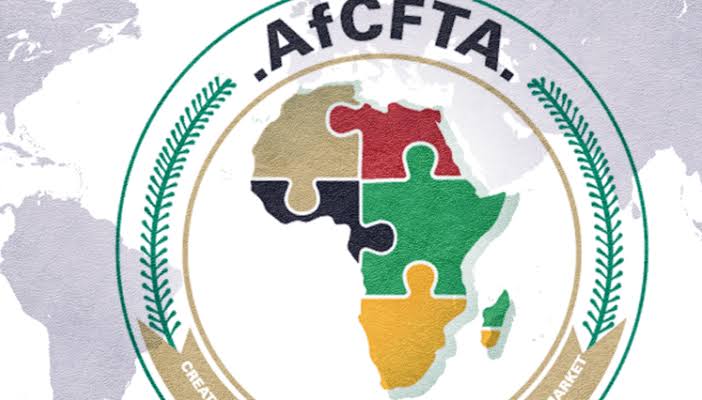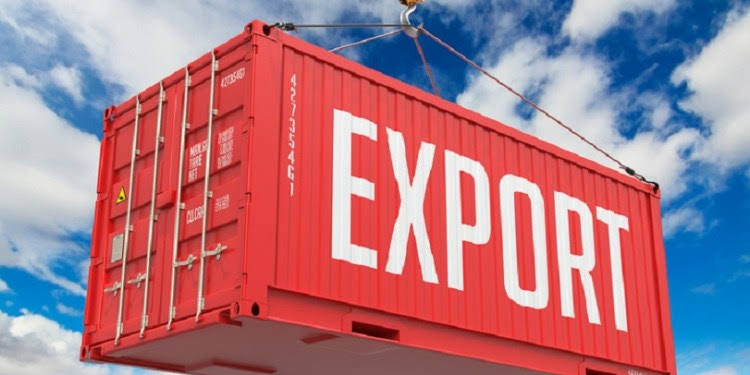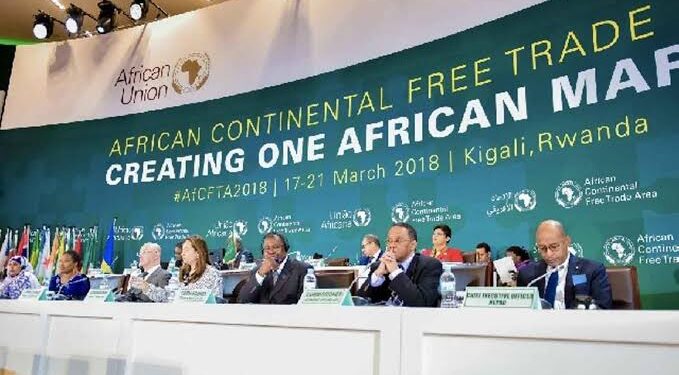The nine companies that made their first exports under the African Continental Free Trade Area (AfCFTA) include Dangote Group, Flour Mills of Nigeria (FMN) and Tolaram.
Other companies that took advantage of the initial AfCFTA opportunity include Hwani Industry Nigeria Limited, Le Look Nigeria Limited, SecureID Limited, Avila Naturalle, Craft Methods Limited and Ruchim Limited.
Nigeria officially launched intra-African trade under the AfCFTA Protocol on Tuesday, July 16, five years after the agreement was formalized in Niamey, Niger. With the official launch of the Guided Trade Initiative (GTI) and Nigeria’s first implementation under the AfCFTA Protocol, the country has moved from planning trade under the agreement to enabling companies to actively trade.
According to the GTI African Continental Free Trade Area National Action Committee, the objective of the GTI is to facilitate commercially meaningful trade between contracting parties that meet minimum trade requirements under the agreement by bringing together businesses and products for import and export.

For Nigeria, exports have paved the way for a new era of trade and prosperity as AfCFTA is the world’s largest trade bloc with a combined gross domestic product (GDP) of about $3.4 trillion and a population of 1.3 billion.
To kick off the first shipment under the AfCFTA protocol, nine Nigerian companies collectively exported Nigerian-made goods from the port of Apapa to five countries in the East, Central and North African sub-region.
The first company to receive the AfCFTA Certificate of Origin, which allows companies to trade under the AfCFTA protocol, is Le Look Nigeria Limited.
The Nigerian company was founded by Chinwe Ezenwa, an entrepreneur who specializes in bag manufacturing. Le Look Nigeria Limited became part of the first AfCFTA shipment by exporting bags to Kenya.
“My journey in making Nigerian bags started 39 years ago and I have been fighting to promote made-in-African goods when people dislike anything made-in-Africa, especially Nigeria. Today, our efforts have taken a centre stage in the world and we are recognised by the Office of AfCFTA and partners in Kenya, Rwanda, and Ethiopia,” Ezenwa told Journalists in Lagos.
According to her, manufacturers of Nigerian products are now penetrating countries in the region, and the GTI under the AfCFTA protocol means Nigerians have to be consistent, resilient and innovative and not wait for the government.
She said penetrating the markets of Kenya, Rwanda, Ethiopia and Ghana is easier compared to the European and American markets.
“The markets in these countries are huge because they are countries that do not have many industries and Nigeria’s huge population gives it a comparative advantage to gain from the AfCFTA trade area. We only need to make our people more productive by creating efficient work hours,”Ezenwa said.
The second company to recognise the potential of a continental trade agreement is Secure ID Limited, a Nigerian company that exported smart cards to Cameroon. SecureID is led by Kofo Akinkugbe, a Nigerian technology entrepreneur who also serves as the group’s managing director.
Dangote Group exported clinkers to Cameroon. The group is owned by Africa’s richest man, who owns a $20 billion, 650,000-capacity refinery at Lekki, Lagos.
Another beneficiary is Abira Naturale, which exported Nigerian black soap and shea butter to Kenya. The company is owned by Temitope Mayegun, who started the business with $30,000 in coconut oil but now offers over 400 products across skin care, food and supplements, water and beverages and fashion.
Similarly, FMN exported natural starch to Algeria.
Apapa, a diversified conglomerate based in Lagos, is headed by Omoboyede Olusanya. Its chairman of the board is John G. Coumantaros.

Tolaram Group exported packaging to Egypt. Indomie instant noodles maker Tolaram, few months ago, acquires Diageo’s 58.02 percent stake in Guinness Nigeria.
Additionally, Ruchim Limited exported Nigerian-made SIMs and bank cards to Kenya while Hwani Industry Nigeria Limited supplied Nigerian-made toilet hygiene kits to Kenya. Hwani was established in 2021.
National Coordinator for the AfCFTA National Coordination Office, Olusegun Awolowo, told Journalists on the sidelines of the launch that the event showed Nigeria’s readiness to participate in formal trade outside the Economic Community of West African States (ECOWAS) countries.
He said the above countries are those participating in the GTI and the idea is to show how long it will take for goods to reach the destination country.
According to him, it will take a long time for Nigeria to adopt and test all the protocols of the AfCFTA agreement.
“Many Nigerian companies will be ready to take advantage of this opportunity with this launch because our products are of high quality. It was a surprise to see sanitary cabinets and bags made in Nigeria.
“We must raise our level of productivity, entrepreneurship, and manufacturing to compete effectively and dominate Africa,” Awolowo said.
For example, the aforementioned Ezenwa said that the AfCFTA office visited the factory and saw that the fabrics “Adire”, “Akwete” and “Aso Oke” used in the manufacture of Le Look bags, but 20 percent of the fabric is Nigerian.
while materials such as zippers are imported.
He said Chinese companies can also participate in AfCFTA trade, but such companies must come to Africa to set up operations and source 80 percent of their raw materials locally.
Meanwhile, port industry stakeholders said Nigeria needs to streamline port processes to make exports more attractive to international buyers.
Leo Ogunba, president of the Shippers’ Association of Lagos (SAL), said Nigeria needs to strive for a more transparent and efficient port system to reduce delays, cut demurrage fees and make exports more competitive in the global market.
“Demurrage fees are penalties shippers incur when they fail to unload their cargo within a designated timeframe. These delays and fees can significantly impact the overall cost of exporting goods, making them less competitive internationally,” he said.
































